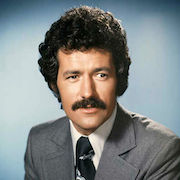|
I'm not optimistic at all, I think morons like you blaming immigrants for every societal ill is the norm and that trend is going to get worse. Far easier than fixing actual structural issues. I am curious as to which out group you'll scapegoat if immigration is reduced to zero and things still don't improve.
|
|
|
|

|
| # ? Jun 3, 2024 00:32 |
|
before it was immigrants it was "asian investors"
|
|
|
|
Fwiw lack of Canadian experience is used all over Canada to reject people from jobs even if there’s literally no good reason either safety or otherwise to do so. This happens even for bullshit white collar jobs, even if they’re not doing anything technical. Even for technical roles, terms like “Software Engineer” are technically illegal in all provinces unless licensed with some local pen pushers despite it being the primary job title globally for someone who Engineers Software. Usually not a big deal because noone cares, but Alberta has been particularly belligerent recently about IT companies using it even going so far as to sue companies for using it in job descriptions, and filing injunctions against individuals who use it in their resume. Like there’s no actual substantial reason to be getting in a twist about it, it doesn’t compromise safety anywhere or dilute some made up prestige in the engineer title, it’s just one of the few actual engineering professions where there isn’t an arbitrary stranglehold over fully qualified newcomers, and that makes some people Very Mad. So basically, gently caress anyone who ludicrously claims that immigrants are causing the problems that could be solved by just letting those same immigrants practice their own profession. We let them in after all, vetted their education, they moved across the world to contribute, and nine times out of ten work harder than Canadian born workers. Give them a test or ramping up training or whatever in cases where it’s absolutely necessary, but most of all stop being racist and get them in the workforce ASAP. Doctors shouldn’t be driving taxis because a small group of idiots in this country can’t see beyond their own thinly veiled narrow minded prejudice of foreign education. qhat fucked around with this message at 13:34 on Dec 24, 2023 |
|
|
|
mila kunis posted:Lol, the lengths people will go to to justify our lovely system is crazy. Googling that led to some LinkedIn article by a rando, but let's assume that's true: This led me to investigate what is actually required to get a license to practice medicine as a foreign-trained doctor in Canada. It looks like according to the Medical Council of Canada the main requirements are: quote:- Have a medical degree from a medical school that, at the time the candidate completed the program, was listed in the World Directory of Medical Schools [which includes 3,800 programs across the globe] So immigrants with legitimate medical degrees absolutely don't need to "restart their entire career and education from scratch" to practice in Canada.
|
|
|
|
I have no idea how those requirements are interpreted, how many viable candidates that screens out and what hoops you have to jump through to get those certifications, but the end result is you absolutely need a restart for the majority of immigrants from medical backgrounds. My family doctor had to, but she was young enough that she thought it was worth the additional time sink. For most others, it isn't. But I suppose you must be right, there is no shortage of medical personnel in the country, nothing we can do about it even if there was without comprising the World Famous Canadian Standards, and the only reasonable thing is to cut demand instead of expanding supply. Time to go on /r/Canada and scream for deportations whenever anyone with a vaguely foreign sounding name is mentioned on the news. mila kunis fucked around with this message at 17:50 on Dec 24, 2023 |
|
|
|
mila kunis posted:I have no idea how those requirements are interpreted and what hoops you have to jump through to get those certifications, but the end result is you absolutely need a restart. My family doctor had to, but she was young enough that she thought it was worth the additional time sink. For most others, it isn't. Let me counter your anecdote with my own. In my time living in Canada I knew three different foreigners who obtained their medical degrees abroad and then began working in the medical system in Canada without "a restart." They mostly got jobs (two in medical-adjacent industries, the third in an unrelated industry), passed their exams, got experience in practice-ready assessment programs, and began practicing within a few years. You can argue that it's not fair that they have to spend time, money, and effort to go through the process, and I would agree--we should subsidize the process more--but your assessment is wrong. quote:But I suppose you must be right, there is no shortage of medical personnel in the country, nothing we can do about it even if there was without comprising the World Famous Canadian Standards, and the only reasonable thing is to cut demand instead of expanding supply. Time to go on /r/Canada and scream for deportations whenever anyone with a vaguely foreign sounding name is mentioned on the news.  The real issue is with Canadian medical schools and residencies artificially limiting admissions, and that needs to be addressed. But cutting back on certifying standards for foreign doctors wanting to practice in Canada is not the right way to do things. The real issue is with Canadian medical schools and residencies artificially limiting admissions, and that needs to be addressed. But cutting back on certifying standards for foreign doctors wanting to practice in Canada is not the right way to do things.
|
|
|
|
qhat posted:Fwiw lack of Canadian experience is used all over Canada to reject people from jobs even if there’s literally no good reason either safety or otherwise to do so. This happens even for bullshit white collar jobs, even if they’re not doing anything technical. I think that fundamentally, this is just another one of the quick ways HR weeds out applications in order to reduce their workload, but there are absolutely parts of the world where credentials are not particularly reflective of someone's actual education or skills. The dumb thing is that they feel they have to treat everything non-Canadian as equally suspect, so Humber is better than Harvard on your résumé.
|
|
|
|
There is a certain amount of lock-in, and I don't think it's always a horrible thing. If I wanted to work as a pilot in another country, I would have to follow some portions of their licensing process -- not re-do literally everything, but probably write a stack of exams, fly with local instructors, pass a local flight test, etc. A foreign pilot working in Canada would have to do the same thing, and it's not just that we don't trust furriners, it's to make sure that everyone has the same baseline competence and understanding of national laws and practices. There's a discussion to be had about how onerous that process ought to be, and if it's sufficiently available to qualified immigrants in a timely fashion, but I don't think the solution is to get rid of it entirely.
|
|
|
|
immigrants, especially international students, tend to be younger than the general population, so if we’re going to blame a group for lengthening healthcare wait times, it would make more sense to blame all these goddamn elderly white people
|
|
|
|
MeinPanzer posted:Let me counter your anecdote with my own. In my time living in Canada I knew three different foreigners who obtained their medical degrees abroad and then began working in the medical system in Canada without "a restart." They mostly got jobs (two in medical-adjacent industries, the third in an unrelated industry), passed their exams, got experience in practice-ready assessment programs, and began practicing within a few years. You can argue that it's not fair that they have to spend time, money, and effort to go through the process, and I would agree--we should subsidize the process more--but your assessment is wrong. TBF "a few years" is the duration of med school, so it kinda is a complete restart? Not disagreeing about the artificially limited admissions though.
|
|
|
|
I think everything from medical school seats to foreign credentials is bottlenecked at the number of supervising physicians so let's just not do anything about that lol
|
|
|
|
Neoliberals would literally prefer 10 years of shortages to 1 year of theoretical excess supply that would be used up before it even went online so gently caress you sick people
|
|
|
|
Seems like the Federal government is slowly realizing quote:Immigration Minister to ‘rein in’ number of temporary foreign workers coming into Canada in 2024 IMO the big problem here isn't the raw numbers of immigrants but the obvious exploitation. These obscure Ontario colleges are bringing in poo poo tons of people on a false promise that Canada needs more Hotel Management Certificate holders, and these newcomers are faced with a reality of working a garbage job and sleeping on a cot with 5 others to a room. Not clear to me whether these immigrants know what they're getting into, and happy to suffer these conditions for a chance at citizenship, or if they're being completely and utterly scammed. In any case, what the Feds and Province need to do here is go after the college, and go after a hyper capitalist education system that is effectively selling lotto tickets for permanent residency. IMO we should still be bringing in these folks, but it should be under conditions where they're not being exploited by colleges and landlords.
|
|
|
|
do you need a hotel management certificate to operate an airbnb because if so the colleges might be right
|
|
|
|
The last time I had a Canadian-trained doctor was when I was a kid. Since then, they’ve been from India, Nigeria, the UK, etc. I thought our lack of docs was due to Canadian-trained physicians absconding to the US for more money, not from a lack of immigrant docs qualifying. Some nurses I know say this is a problem across the healthcare profession in general. I only have anecdotes to go on.
|
|
|
|
Femtosecond posted:Seems like the Federal government is slowly realizing More anecdotes on my part, but recent immigrants I know (arrived here in the past 5 years) absolutely know they’re in for a poo poo time, at least in the beginning. It’s what’s making Canada less of an attractive destination for many back home. I know a few Indian guys who were well qualified but took security jobs and under the table jobs to support themselves while taking college courses to fulfil their student visa. The intention was to use it as a path to immigration, and luckily it worked out for them. But not before we exacted some low-end labour and charged them exorbitant fees to re-do some college level qualifications at sometimes respectable and sometimes not-so-respectable colleges. It’s just a way to get TFWs while making them pay into the college system.
|
|
|
|
a primate posted:The last time I had a Canadian-trained doctor was when I was a kid. Since then, they’ve been from India, Nigeria, the UK, etc. IIRC there's also a trend amongst doctors towards "having a life" and "actually seeing their kids" which is also decreasing the supply because they aren't willing to work the insane hours anymore (and are happy with the pay cut that comes with that). Like it's not the whole picture, but it's part of it.
|
|
|
|
Lead out in cuffs posted:IIRC there's also a trend amongst doctors towards "having a life" and "actually seeing their kids" nO oNE wanTs tO WOrk anYmOrE
|
|
|
|
COPE 27 posted:Neoliberals would literally prefer 10 years of shortages to 1 year of theoretical excess supply that would be used up before it even went online so gently caress you sick people This is the game because the less doctors there are the less money you spend on health care. Let's be real doctors are also into this because they can make more money individually and they are business people as well. They'd much rather the payment schedule increase than the number of doctors.
|
|
|
|
linoleum floors posted:This is the game because the less doctors there are the less money you spend on health care. Cuts are also probably exerting pressure to hike service fees. My family doctor clinic is now charging $25 per faxed prescription, as these are no longer covered by OHIP. So if you need prescription renewals, you’re now paying the clinic out of pocket.
|
|
|
|
a primate posted:I thought our lack of docs was due to Canadian-trained physicians absconding to the US for more money, not from a lack of immigrant docs qualifying. Some nurses I know say this is a problem across the healthcare profession in general. I only have anecdotes to go on. Friend in the medical nursing profession was lamenting how they had real offers of $300k+USD, albeit for the no-personal life in the states (mostly southern) where you end up bouncing between hospitals/cities (hence the no life). If he hadnt put down roots here (kid) he'd be doing that now and know a couple of others that have already. A few years of that and that's a hell of a nest egg to have by the time you're 30.
|
|
|
|
unknown posted:Friend in the medical nursing profession was lamenting how they had real offers of $300k+USD, albeit for the no-personal life in the states (mostly southern) where you end up bouncing between hospitals/cities (hence the no life). New Guy at work used to coordinate medical treatment to get pilots back to medical fitness at a major Canadian airline, and the stories he told about the actual mechanics of getting that done within the Canadian system (or... outside it, when the company deemed it worthwhile), and the bullshit he saw with positions being filled on high-pay contracts to avoid slotting something into the "salaried" column, made me deeply concerned about the state of our system. Now, to be clear, I am still in favour of a single-payer system where money doesn't influence quality of care. But I think we need and deserve a system that provides the necessary care (and not just for life-threatening issues) in an efficient manner. Our system is, on the whole, preferable to what they have in the US, but it's a gently caress sight from "good" and it's about time we start getting pissed off about that.
|
|
|
|
I wonder if maybe just maybe, the reason why the ban on foreign buyers hasn't made homes more affordable is because foreign buyers wasn't actually a real problem? No that can't be it. Better do a round of quotes from the usual demand sider crackpots. (Shocked that this isn't a Kerry Gold article. Kerry Gold watch out! Someone is after your gimmick!) quote:Why Canada's ban on foreign buyers hasn't made homes more affordable Amazing how Andy Yan can vaguely assert that the ban is "full of holes" and get his quote in the paper despite expressing no real evidence of any holes. Thanks Canadian Journalism. Let's have a look at these troubling exemptions. quote:https://www.cbc.ca/news/politics/canada-ban-non-resident-buyers-exemptions-1.6693875 Oh yeah boy those students buying those sub $500k properties certainly are having a big impact! Oh wait there's nothing for sale below $500k. Reality is that the BC and Ontario speculation tax killed foreign buyers long long ago. The reason the ban "isn't working" is because there was already nil foreign buyers left. Femtosecond fucked around with this message at 06:22 on Dec 29, 2023 |
|
|
|
Scale back the million a year immigration (start at half total, all categories and adjust) Stop the lifetime primary residence tax exemption, make it one time only, tax all house sales at 25% for individuals, corporations at 50% Use the house sales tax revenue to build public housing. Integrate these projects into all areas, gently caress the nimbys. Park one of these in rosedale, the beaches, lakeshore in Oakville, Mississauga road, and across the street from Drakes mansion We need to take drastic steps like right fuckin’ yesterday.
|
|
|
|
Interesting focus in this oped from the Globe. It's the planning and the planners that are the cause for why the ultra exclusive wealthy neighbourhood of Shaughnessy remains frozen in amber. The notion that maybe just maybe the political process has been influenced by the enormously wealthy and powerful residents of this neighbourhood is not considered. I don't really disagree here with the notion that our planning is very bad, but seems like their identification of the core problem is quite a bit downstream of the actual causes. I dunno, I haven't worked in planning before, but seems unlikely to me that some wage slave middle class urban planner gives that much of a poo poo for protecting Shaughnessy with exclusive zoning. Seems more likely that their bosses on council told them that's what they wanted to see. Maybe I'm wrong! Maybe the old boomer planners that made these decisions really are that brain damaged. Would be surprising to me though. quote:Cities need (a lot less) planning So the apparent core problem here is the civil servants that have gotten in there and messed things up so as to protect their comfortable jobs. The implied solution then is to get rid of the planners, cut the civil service etc. Then everything will be fixed. All in all a pretty comfy ideological position for the right of centre Globe and Mail. Maybe it's the right move, but if planners are simply doing as they're told by council, well then the the real problem here was that Shaughnessy residents took over political influence over the city to their advantage, and that is going to happen again and again so long as one does nothing to prevent it. Removing the planners is largely irrelevant and Shaughnessy will find some other way to protect itself.
|
|
|
|
I saw a bus shelter ad urging people to file their vacant home tax declarations so I can only assume that the problem, if any, is now solved.
|
|
|
|
I’m quite fond of saying that the planning profession is where Marxists go to die, because it seems (from initial blush) that reforming urban planning will finally usher in an equitable, just society, but then you actually work in the field and discover that, as a professional, your decisions aren’t really yours and still, as always, inevitably, bend to the will of the wealthy and corrupt.
|
|
|
|
sitchensis posted:I’m quite fond of saying that the planning profession is where Marxists go to die, because it seems (from initial blush) that reforming urban planning will finally usher in an equitable, just society, but then you actually work in the field and discover that, as a professional, your decisions aren’t really yours and still, as always, inevitably, bend to the will of the wealthy and corrupt.
|
|
|
|
WILL NO ONE RID ME OF THESE BURDENSOME AND TYRANNICAL URBAN PLANNERS WHO WILL NOT ALLOW ME TO DO WHAT I WANT, AND WILL ONLY OBEY THE WHIMS OF AN ELECTED COUNCIL? SURELY IF WE JUST PUT IT TO A VOTE AND IGNORED THESE SO-CALLED "TECHNOCRATS", WE WOULD FINALLY BE ABLE TO --  hmm strange why is this happening  AH, BUT THE PLANNERS ARE RESPONSIBLE FOR DEVALUING THESE PROPERTIES! THE ENEMY IS HERE, AND THE COURTS UPHELD THIS DEVIOUS HERITAGE CONSERVATION AREA DESIGNATION! CURSES! WAIT, WHAT DO YOU MEAN THAT THE HCA DOESN'T INHIBIT INCREASED DENSITY? WHAT DO YOU MEAN THAT THIS NEIGHBOURHOOD HAS A LONG HISTORY OF MULTIPLE DWELLINGS (INCLUDING CONVERSIONS) IN THE 1930s AND 1940s?! I THOUGHT THE HERITAGE RULES WOULD STOP THIS! WHY, I'M GOING TO COMPLAIN TO COUNCIL RIGHT NOW AN--  oh looks like the province already thought of this too with bill 44 in conclusion, the G&M article is hot loving garbage and by god do i love D&D
|
|
|
|
lol I completely forgot about the recent vote. lmao that makes the reality of the situation all the more explicit.
|
|
|
|
Imagine if people that believe that equality should be equity get any position in government
|
|
|
|
2013 2014 2015 2016 2017 2018 2019 2020 2021 2022 2023 2024: this is our year, Canada housing bubble thread. Prayers up
|
|
|
|
How'd everyone's new BC assessment look? We're down 6%
|
|
|
|
Victoria down on average but I'm up 70k. Taxes will be fun
|
|
|
|
South False Creek condo, down 5%
|
|
|
|
2022: townhouse purchased at assessed value (rates going up let us offer “low”) 2023: +15% 2024: -14% We bought this place for 40% more than the POs did and it’s not all that old lol.
|
|
|
|
2024: still a rentailure
|
|
|
|
I mean obvsly we are gonna have to see but antedentolly the condos I've being looking at have all being selling below asking price some of the "sold" are showing that they are selling for 5-10% above 2019 prices
|
|
|
|
sleep with the vicious posted:
Well, on that note, TorStar had an article that George Brown is considering building staff housing. Which is great and all, but I didn't get past the second paragraph or so where it emphasized the considering part. On the other hand, the NYT has gotten on the "colleges recruiting too many international students" article craze with this article on Northern College, Timmins, recruiting mainly from India. I'll just quote the more relevant parts: quote:Public colleges and universities, hit hard by budget cuts, have grown dependent on the higher tuitions international students must pay. For students from abroad, the institutions can be a conduit to permanent Canadian residence, and for Canada, the students help reduce labor shortages and increase the country’s flagging productivity. It shouldn't matter exactly where international students come from, but it kind of gives up the game for the college president to call it a market and also drat, 96%? quote:Founded in 1967, Northern, like other public colleges in Ontario, was established to develop a work force suitable for its region. That meant training young people to work in mining, technology and health care. I've never heard of this college before but apparently it's gone from a place to train people to literally work in mines (and supporting businesses/industries) to partnering with a private college in the GTA to do ???, although I can't find anything about a campus anywhere near the GTA on their website. quote:Arbaz Khan, 25, said he was not only the first member of his family, but the first Muslim in his village in Gujarat to study in Canada. Because his family owned farmland and his father was a politician, he was able to secure a bank loan of about 30,000 Canadian dollars, or about $22,500, for part of his tuition and other costs to study at Northern. Alright uhh working backwards - I guess this is a success story because the couple still lives in Timmins and runs a Small Business. Fine. Recruiting people to live and work in remote communities has long been a challenge, and hell Quebec consistently struggled to the point where they invented the Immigrant Investor Program (assuming they were originally genuinely interested in using it to boost immigration before pivoting to using it to generate revenue). I can totally believe that recruiters in India are misleading potential students about the circumstances of going to this college and living in Timmins. I can also believe people plonking down $30k to go to an English-speaking college somewhere, despite any warning flags. I have trouble believing that you can book an Uber to travel 8 hours without having any idea where your destination is, although amusingly, I tried booking one for Timmins just now and the only option was an electric vehicle (with a 700km range, yeah sure). The irony of Kaur working in marketing at the college is not lost on me. quote:A snapshot of some of Northern’s Indian students offers a window into how they could change Timmins. Early childhood education, cool, police, hmmmmmmmm. quote:Across Canada, the influx of foreign students has been so great that it is blamed for worsening housing shortages. The Canadian government has recently taken measures to stem the increase, including by doubling the level of savings international students must prove they have. So yeah, this just emphasizes that despite ostensibly being a public school, this is practically a predatory private college with little concern for their students' welfare. If Wikipedia is to be believed, this college had ~2k full time and ~15k part time/continuing education students as of 2020, so the part time students are going to have as much motivation to work and more time to do it.
|
|
|
|

|
| # ? Jun 3, 2024 00:32 |
|
Typo posted:I mean obvsly we are gonna have to see Tough to be making any predictions but there’s a whole lot of condos with cancelled listings over November and December, presumably to be listed in the ‘spring market’ which starts in a few weeks. That, plus the large amount of projects completing in 2024, and tepid incomes vs the asking prices? Even with a potential single .25 cut by June, it’s possibly going to be a bloodbath of supply in the condo market this year -. I’d be surprised if condo prices in Vancouver don’t end up 20% below 2019 levels. Especially the 1BR/studio ‘luxury’ shitboxes coming from Airbnb hosts looking to get out. Nairbo fucked around with this message at 08:35 on Jan 2, 2024 |
|
|






































